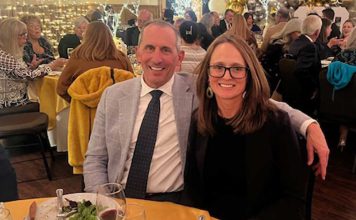I was lucky enough to have the nicest mother-in-law in the
world. I have no doubt that you’ve already heard enough
mother-in-law horror stories, and maybe you’ve got one of your own.
But I had the nicest mother-in-law in the world.
I was lucky enough to have the nicest mother-in-law in the world. I have no doubt that you’ve already heard enough mother-in-law horror stories, and maybe you’ve got one of your own. But I had the nicest mother-in-law in the world.
Before I married her son, she was nice to me, and after I married him, she was still nice to me. When my fiancee’s father said, “But she’s not Japanese!” and wanted to arrange a marriage for his son, it had no effect on my future mother-in-law – she welcomed me with open arms.
As a western European mutt, joining a Japanese American family has been quite a different kind of cultural education for me. My mother-in-law never wasted a thing. Old toast, KFC Styrofoam containers, coffee cans, pie tins, and pickle jars – everything was reusable. Her pantry was filled with baggies, brown paper sacks, rubber bands, take-out containers, and rewashed squares of foil. But when she would send her homemade teriyaki chicken home with me in one of those containers, I couldn’t complain.
She always sent me home with goodies, fruit, and often fresh-cut flowers from her yard. She shared everything she had. She remembered every birthday, every anniversary, and every special occasion in a family of more than 100 relatives, traveling from Idaho to Japan and many places in between to attend weddings and funerals. No relative was too far away for a visit.
I learned that growing up, she had endured times so poor that her family was starving for food, and they lost everything when they were put in Japanese internment camps during WWII. No wonder she was so careful not to waste anything.
She raised four sons, often alone while her husband found work in Nevada. A move to Wasco proved disastrous due to the racism and difficult work situation they encountered there, and they had to move back to this area and start all over again. I never once heard her complain about any of this, and she held no bitterness about the camps, no resentment or anger at what had happened to her.
Her only daughter died as an infant; thirty-two years later, Marjorie still got tears in her eyes if you asked about it. Family meant everything to her. She took hundreds of photographs of all of us, and she cooked at family gatherings all her life. How appropriate that when she died unexpectedly last Friday, she was in her own home, surrounded by family and visiting relatives – in her own kitchen.
“She was a gift from God,” her husband Henry says. “She was on loan to me. Now she’s gone back to God.”
One thing that made me impatient was that she never wanted to let me leave. It would seem like an hour before I could get out the door – she would say, “Oh I have some lemons for you,” and then she’d go out into the backyard to pick them. She’d say, “Oh, I want to send some flowers home with you,” and it would be a long time because she’d be outside cutting them in the dark. If she gave you food, it would take awhile because she’d wrap it as carefully as if she were folding an origami crane.
The good thing about her is she never wanted to let me leave. Now she is the one who has left on a different kind of journey. I will never again wait impatiently while she picks lilacs for me to take home; I will never again taste her teriyaki chicken. I had the nicest mother-in-law in the world.













